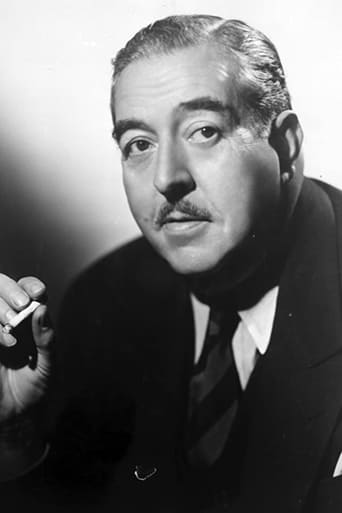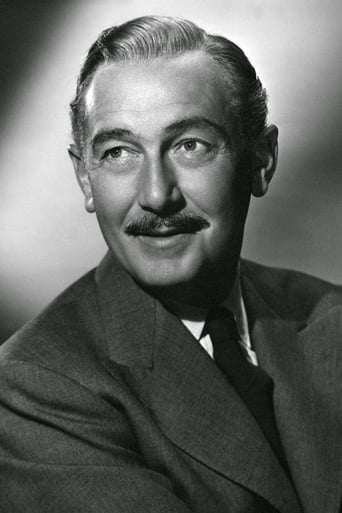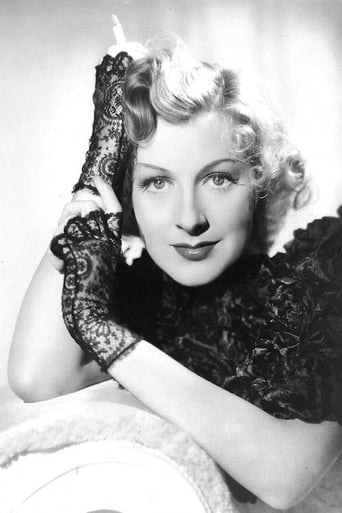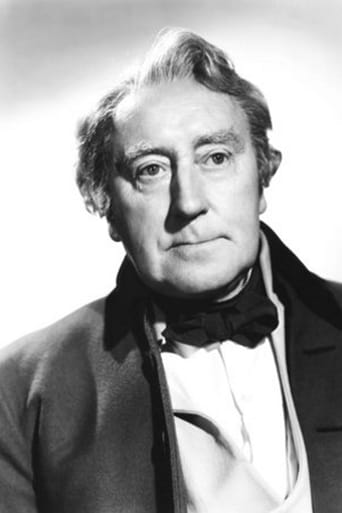Exoticalot
People are voting emotionally.
CrawlerChunky
In truth, there is barely enough story here to make a film.
Salubfoto
It's an amazing and heartbreaking story.
Billy Ollie
Through painfully honest and emotional moments, the movie becomes irresistibly relatable
zardoz-13
"Father Brown, Detective" isn't half as entertaining as director Robert Hamer's film "The Detective" (1954) with Alec Guinness. Character actor Walter Connelly isn't bad as the eponymous protagonist, but he seems a bit too comical. Alec Guinness was much more believable and sympathetic as the cleric. Moreover, the daring thief Flambeau (Peter Finch) in the Guinness film was ingrained with greater depth and background than Paul Lukas's debonair thief. "Father Brown, Detective" comes off sounding more like a Catholic recruiting effort and the filmmakers lay the religion on with a trowel. Generally speaking, the Hollywood Production Code dictated to the studios that good should always triumph over evil. The Guinness version is more credible than frequent Buster Keaton collaborator director Edward Sedgwick's Paramount release. For starters, Flambeau is far too easy to catch. He gives himself up! Furthermore, Connelly's Father Brown is never really in any sort of jeopardy. Comparatively, Flambeau outwitted Guinness' Father Brown and actually stole the church cross. Indeed, both films concern the theft of a valuable religious icon—a cross—and its recovery. The elusive Flambeau is described by the authorities in "Father Brown, Detective" as a master of disguises, but we only see him in one disguise and it is not very convincing. Whereas, Peter Finch's Flambeau dons better disguises. Production values are meager, and "Father Brown, Detective" appears to have been a pilot for a franchise that inexplicably never materialized.
Paularoc
I prefer Walter Connolly's characterization of Father Brown more than Alec Guinness' overly eccentric rendition. Connolly's Father Brown is empathetic and spiritual but also has a touch of whimsy and humor about him that is endearing. As a priest he wants to save the soul of a notorious thief, Flambeau (Paula Lukas). Flambeau plans to steal diamonds in order to give them to a woman he is recently smitten with (Gertrude Michael). Four of the diamonds are on Father Brown's cross. Flambeau has notified the police, Father Brown, and the man who he plans to steal the other diamonds from that he will steal their diamonds. The man happens to be both the Police Commissioner and Michael's father. The philosophical discussions between Father Brown and Flambeau are brief and interesting but not preachy or overly done. It's a light hearted and fun movie with a solid cast and well worth a watch. My only quibble with it is that, at 43, Paul Lukas is too old to play Flambeau. However, he does do a good job with the role.
dbborroughs
Walter Connolly plays GK Chesterton's classic character is an okay adaptation of the stories. Following the basic plot used in the better Alec Guiness film Father Brown is attempting to stop the thief Flambeau (Paul Lukas) from stealing a diamond encrusted cross that is in the possession of his Parrish. Actually Brown doesn't care so much about saving the cross as saving Flambeau. Amusing at times with some great discussions between Flambeau and Brown, enjoyment of the film will hinge on whether Connolly's Brown clicks with you or not. I found him okay, but often grating, the result of his trying too hard to be something approximating the character. For me it boiled down to there being more than a few times when he was a collection of ticks and gestures and such that never really jelled as if he felt he had to do X, Y or Z to be the character instead of just being (which he did do in many scenes at which time the film worked). Ultimately its not a bad film, its one that just sort of misses and its easy to see why this isn't as well known as the Guiness film.Worth a look if you run across it, but not worth searching out. between 5 and 6 out of 10
JohnHowardReid
It's both interesting and instructive to compare the two movie versions of "The Blue Cross". In the Paramount picture, the writers cleverly preserve the maguffin of the tale, namely the ingenious yet simple way in which Brown outwits his adversary, yet change the character of the priest himself. In the British picture, however, Brown's astonishing ingenuity is completely ignored, other than his re-swapping the parcels (a commonplace feat common to both films); yet, although he indulges in no abstruse theological debates, the Guinness' Brown is far more faithful to G.K. Chesterton's conception. Frankly, despite Chesterton's disapproval, I prefer Connolly, who makes Brown a believable priest, not an argumentative theology basher lecturing on "the real difference between human charity and Christian charity" and similar peripheral, philosophical subjects ("The Chief Mourner of Marne", page 583 in the Cassell omnibus edition).Walter Connolly and his scriptwriters imbue Brown with a quality that Guinness and company don't even attempt: Spirituality! The only other movie occasion in which I've seen this essential quality brought into the open was in the character played by Burgess Meredith in The Cardinal (1963). With Connolly, however, this virtue is not drawn to the audience's attention. It's just there! In a gesture, a wink, an attitude or simply part of the actor's charisma. Connolly's performance transcends "acting". He really is Father Brown. On the other hand, with Guinness we always have the impression that here is Guinness again most ably playing his customary screen character, this time under the label, Father Brown.Although he is not the Flambeau described in the books, Paul Lukas does well in the part and receives excellent support from lovely Gertrude Michael. Hobbes, of course, is his usual aristocratic self. And also much as usual, alas, is Una O'Connor, complete with trademark squawk. Fortunately, her role is small. Technical credits are first-class.




